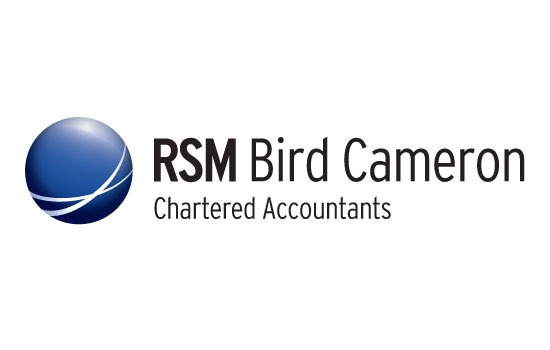
Audits by the ACT Revenue Office (ACTRO) for payroll tax purposes can result in significant tax liabilities for the unprepared, particularly if workers you’ve counted as contractors are determined to be employees and you’ve underestimated your tax liability. What many directors aren’t aware of, is the substantial power that ACTRO has to collect the resulting debt. Those who are unsure about the role of ACTRO and the power they can exercise to collect revenue, may find this summary useful.
WHAT IS ACTRO?
ACTRO – the ACT Revenue Office – administers taxation and revenue collection for the Territory. Payroll tax is a significant source of that revenue and it is managed in accordance with the Payroll Tax Act 2011 (PTA) and the Taxation Administration Act 1999 (TAA).
ACTRO MONITORS COMPLIANCE
In carrying out its responsibilities ACTRO takes steps to identify businesses that should be registered for payroll tax but are not, and conducts audits of registered businesses to verify information provided and the payroll tax liability. In the event that your business is non-compliant and a tax liability results, ATCRO has substantial powers at its disposal to recover the tax owed.
POWERS TO COLLECT TAX DEBTS
Naturally, in the first instance ACTRO seeks to recover the debt from the business. However, where a business cannot pay the debt and fails to make a suitable arrangement to do so, ACTRO may seek payment directly from financial institutions holding money on the company’s behalf, directors, former directors or even third parties who owe (or will owe) money to the business.
SECTION 54 NOTICES – COLLECTING DEBT FROM THIRD PARTIES
Under Section 54 of the TAA, the Commissioner can serve a notice requiring another person to pay the taxpayer’s debt. This can include:
* Someone who owes or will owe money to the taxpayer;
* A person who holds (or may hold in the future) money for or on account of the taxpayer;
* A person who holds (or may later hold) money on account of another person for payment to the taxpayer; and
* Someone having authority from another person to pay money to the taxpayer;
This is quite broad and could include your bank, a client you are expecting a payment from, or even someone who is purchasing an asset from you. These notices are similar to those used by the ATO which are commonly referred to as “ATO Garnishee Notices”.
If the person served with the Section 54 Notice fails to comply, the result can be a fine of up to $5500 for an individual, or $27500 for corporations.
SECTION 56B NOTICES – COLLECTING DEBT FROM DIRECTORS
Where a corporation fails to pay an assessment amount, a director or former director can become personally liable. The Commissioner has the power under Section 56B to issue a compliance notice on:
* A director of the corporation; or
* A person who was a director when the corporation first became liable to pay the assessed amount or any part of that amount – or at any time afterwards.
If the assessment amount is not paid, or the assessment is not ‘withdrawn’, within the period stated in the compliance notice, the director or former director is jointly and severally liable with the corporation to pay the assessment amount.
An assessment may be considered ‘withdrawn’ under this section if the corporation enters into a suitable arrangement with the Commissioner to pay the debt, if a voluntary administrator is appointed, or if the corporation begins to be wound up or liquidated within the meaning of the Corporations Act 2001.
UNPAID PAYROLL TAX CAN LEAD TO WINDUP
If a company fails to make its payroll tax payments, the ACT Government Solicitor may be asked to take action on behalf of the Territory to wind up the company.
The NSW Office of State Revenue (NSWOSR) has a similar capacity to collect debt and has increased its payroll tax compliance auditing and winding up activities.
WHAT YOU CAN DO
In the event that a Section 54 Notice is issued or you receive a Section 56B Notice, there can be options if you act early. You may be able to save your business and limit your personal risk. If a notice has been issued, it’s time to speak to an expert and take appropriate action quickly.
HOW RSM BIRD CAMERON CAN HELP
RSM Bird Cameron has a team of 23 local turnaround and insolvency specialists on hand as well as a number of industry specialists across our national team. We offer a cost and obligation free initial consultation where we look at the options that may be available to you and offer advice on your circumstances.
WHAT YOU NEED TO KNOW
As a director or former director, you can be held personally liable for the company’s payroll tax debt.
The Government can collect unpaid payroll tax from clients who owe your company money.
Have you received a Section 56B notice? Act quickly – you may still be able to save your company and limit your personal liability.
Act quickly if you receive a notice – RSM Bird Cameron can help you explore options that may save your company or limit your personal liability.
If you cannot pay your payroll tax, ACTRO can take steps to recover the outstanding tax from other parties who hold money for you, owe you money, or hold money for someone who owes you money. This could include a bank, a client you’ve invoiced, or even a client’s bank.
ACTRO can take steps to wind up your company if the company cannot pay its payroll tax.
TIPS TO KEEP ON TOP OF PAYROLL TAX
* Register for payroll tax if it applies to you
* Make accurate assessments of your workers
* Have funds available to pay any tax liability
* Pay your assessment promptly
* Seek expert advice if you cannot pay
* Act quickly if you receive an notice from the Commissioner
With RSM Bird Cameron you really are… Connected for Success.
